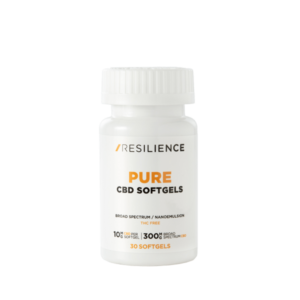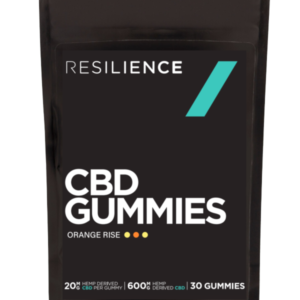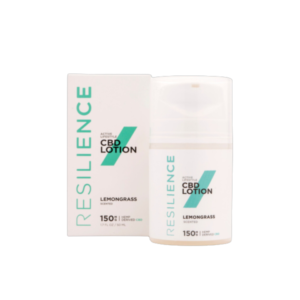
Many people consider CBD as one of the most important parts of their wellness regimen. Whether you choose to use CBD oils, gummies, or topicals, making CBD a part of your daily routine can help boost your overall vitality and health.
But if you’re conscious about your body weight and appearance, you may have one concern—does CBD make you hungry? While psychoactive marijuana is known for causing increased hunger, hemp-derived CBD does not make most people hungry.
In this short guide, we’ll explain how CBD affects hunger and metabolism and the best ways to use CBD to boost your overall health.
Key Takeaways:
- THC is known to cause an increased appetite—aka “the munchies”
- A legal CBD product contain little or no THC and should not have the same effect
- A very small amount of CBD users find that CBD makes them hungry
- CBD can help to support a healthy appetite and metabolism
CBD vs. THC
Both CBD and THC are cannabinoids that are naturally found in cannabis plants. While there are over a hundred known cannabinoids, these two are the most prevalent and best-understood compounds in hemp.
However, the two compounds have very different effects on the body.
Why? Because it all boils down to the way that each cannabis substance interacts with the endocannabinoid system.
The endocannabinoid system (ECS) is a network of nerve receptors found throughout the body that can interact with THC, CBD, and other cannabis compounds. This system is thought to affect the following bodily functions:
- Healthy sleep cycles
- Mood
- Memory
- Stress
- Immune system function
- Response to discomfort
- Appetite
The cannabinoid, THC, binds to nerve receptors in the endocannabinoid system, overwhelming them and creating responses that can include relaxation, drowsiness, and reduced soreness. It can also produce unwanted effects like changes to memory, intense stress, and, of course, the munchies.
While more studies are needed, it’s clear that CBD does not bind to a cannabinoid receptor in the same way as THC. Instead, it seems to have a milder effect that actually helps the body return to its baseline state (homeostasis).
CBD Products and THC
Wait! You might wonder. How do I know there’s no THC in my CBD Products?
Under current federal law, CBD products must be derived from industrial hemp that contains less than 0.3% THC. As a result, CBD products should not get you high or give you intense cravings for unhealthy foods.
Trying to be extra careful with the products you choose? Select a CBD isolate or broad-spectrum CBD product that has been formulated to remove all THC.
CBD, Appetite, and Metabolism
Now you know that CBD isn’t an appetite stimulant and doesn’t cause “the munchies.”
At the same time, it’s natural to wonder what effect it does have when interacting with the endocannabinoid system, which can help to moderate a person’s appetite.
According to one study, about 6% of CBD users self-report that CBD makes them hungry. However, this is a relatively low percentage, and it’s entirely possible that these people felt increased hunger because their bodies actually needed more food.
As we mentioned, CBD seems to help the body maintain homeostasis. It follows that it may help people who are consuming enough calories to curb their appetites, while those who are undernourished may receive nervous system signals reminding them to eat.
While more studies are needed, preliminary research bears out this theory and suggests that CBD can help you to maintain a healthy metabolism. For example, some studies have shown that CBD may limit weight gain.
CBD and Fat
There is also some evidence that CBD has an indirect effect on your fat cells. To that end, there are two types of fat in the body:
- White fat – White fat cushions your organs and insulates the body. It’s the most prevalent type of fat in the human body.
- Brown fat – Brown fat is a denser type of fat. When our bodies “burn” brown fat, it generates body heat.
People with higher levels of brown fat versus white fat tend to be slimmer.
What does this have to do with CBD? Some studies indicate that CBD may help the body express genes that can convert white fat to brown fat. While that doesn’t mean you’ll lose fat and see weight loss results, this denser, healthier fat may give you a slimmer appearance.
CBD’s Other Benefits
CBD is not an appetite suppressant. Rather, it’s a body-enhancing supplement that can help support your overall health. In fact, some of CBD’s other most famous potential effects could further enhance its ability to promote a healthy appetite and metabolism.
Other potential benefits include:
- Combatting stress – How do you cope with stress? Many of us reach for a bag of kettle corn, potato chips, or another comfort food. Since CBD can help you find more peace and relaxation, it may also help you curb cravings for your go-to unhealthy snack.
- Supporting sleep cycles – A lack of sleep can have a systemic impact on your body. When you’re unable to get the rest you need to recharge, it’s difficult to find energy throughout the day. That leads many of us to reach for caffeinated beverages, sugary sweets, and other questionably healthy foods that provide a temporary energy boost. If you’re getting better sleep, it’s that much easier to find your focus without these snacks.
- Boosting energy – Because CBD gives so many aspects of our body a helping hand, many people find they simply feel better when taking CBD. When you’re happier and healthier, it’s easy to stick to a diet that supports your energy levels.
How to Make CBD Part of Your Healthy Routine
As we’ve noted, CBD can help to support overall health, including aiding a healthy metabolism and appetite. There are many methods to use CBD, and some allow you to avoid THC altogether (if that remains a concern).
Next, we’ll go over the best ways to make CBD a part of your daily routine.
CBD Oil
CBD oil is known for being one of the most efficient ways to take CBD. When you take CBD edibles, a percentage of the CBD is broken down in the acidic digestive system. In contrast, CBD is more efficiently absorbed across mucous membranes like the one under the tongue.
Holding CBD oil under your tongue for up to a minute is a great way to experience its beneficial effects. However, you are also able to add CBD oil to your coffee or smoothies if that’s more convenient for you! You have two great options for CBD oil.
- CBD isolate oil – Want to avoid the chance of consuming any THC? If you know that even small amounts of this cannabinoid make you hungry, you may be better off with a CBD isolate oil. As the name suggests, CBD isolate isolates CBD from the other compounds in the hemp plant.
- Full-spectrum CBD oil – Some evidence suggests that CBD works best in partnership with the other naturally occurring compounds in the hemp plant, from cannabinoids like THC, CBN, and CBG to the terpenes that give the hemp plant its distinctive aroma.
For best results, make CBD oil a part of your daily routine.
CBD Gummies and Softgels
Some people find that oil is less than ideal for their lifestyle. Because oil is liquid, traveling with it can risk spills and other mishaps. On top of that, it’s less than discreet for use in professional environments. The solution? CBD gummies or capsules.
- CBD gummies are a perennial favorite for exercise recovery and other uses. Gummies are tasty, discreet, and fun. On top of that, it’s easy to find vegan gummies as well as broad-spectrum gummies that are formulated with 0% THC. These fun treats can help satiate your sweet tooth without causing increased appetite.
- CBD soft gels are another great way to enjoy the benefits of broad-spectrum CBD. Choose pure soft gels in the morning to help you relax and get ready for your day. Alternately, Resilience CBD’s rest soft gels combine CBD with melatonin for the perfect bedtime supplement.
CBD Topicals
One secret to CBD use?
Ingesting CBD via oil or edibles affects nerve receptors throughout the endocannabinoid system. That’s why it can potentially have head-to-toe benefits, from boosting your mood to helping you feel more grounded in your body.
In contrast, topical CBD can be absorbed through the skin to have a more targeted effect. Topical CBD is excellent for the following uses:
- Sore joints
- Fatigued or tense muscles
- Post-exercise inflammation
There are multiple ways to target the specific area that’s irking you. Try sports gel or body cream for concentrated relief that’s unlikely to affect your appetite at all. Additionally, use CBD whenever you’re experiencing soreness, or make CBD body lotion a part of your daily moisturizing routine.
Boost Vitality with Resilience CBD
Supplements are a great way to support your overall wellness and vitality. The trick? Make sure you’re buying supplements that fit your goals.
Resilience CBD carries a wide array of naturally derived full-spectrum, broad-spectrum, and CBD isolate products. That means you can easily avoid THC and any chance of the munchies—or, if you’re up for it, experience the benefits of low-THC full-spectrum CBD.
When you know you can trust your CBD brand, it takes one more worry off your plate. That way, you can fill it up with the thoughts and activities that boost your vitality! Ready to add CBD to your wellness routine? Fantastic. You’re in the right place.
 Written by: Michael Tatz | Linkedin
Written by: Michael Tatz | Linkedin
Michael Tatz is the Co-Founder of Resilience CBD, and a passionate leader in the health & fitness world helping others rise to and crush their wildest goals. A former Division 1 college wrestler, Army Officer, and investment manager at Goldman Sachs, he has pushed his body and mind to the limits on the mats, dressed in camo, and in the boardroom.
Today, he spends his time leading Resilience CBD to develop the absolute best recovery products for athletes everywhere. Resilience was founded after CBD personally impacted Michael’s life, and the brand was built to partner with everyday athletes in pursuit of conquering their most difficult challenges, rebounding after their toughest performances, and rising to their goals that once seemed impossible.
Sources:
- Farm Bureau. USDA Releases Long-Awaited Industrial Hemp Regulations. https://www.fb.org/market-intel/usda-releases-long-awaited-industrial-hemp-regulations#:~:text=The%202018%20farm%20bill%20legalized,a%20THC%20threshold%20of%200.3%25
- Cannabis and Cannabinoid Research. A Cross-Sectional Study of Cannabidiol Users. https://www.ncbi.nlm.nih.gov/pmc/articles/PMC6043845/
- Neuroscience Letters. Cannabidiol decreases body weight gain in rats: involvement of CB2 receptors. https://pubmed.ncbi.nlm.nih.gov/21172406/
- Healthline. Brown Fat. https://www.healthline.com/health/brown-fat#How-to-get-brown-fat







